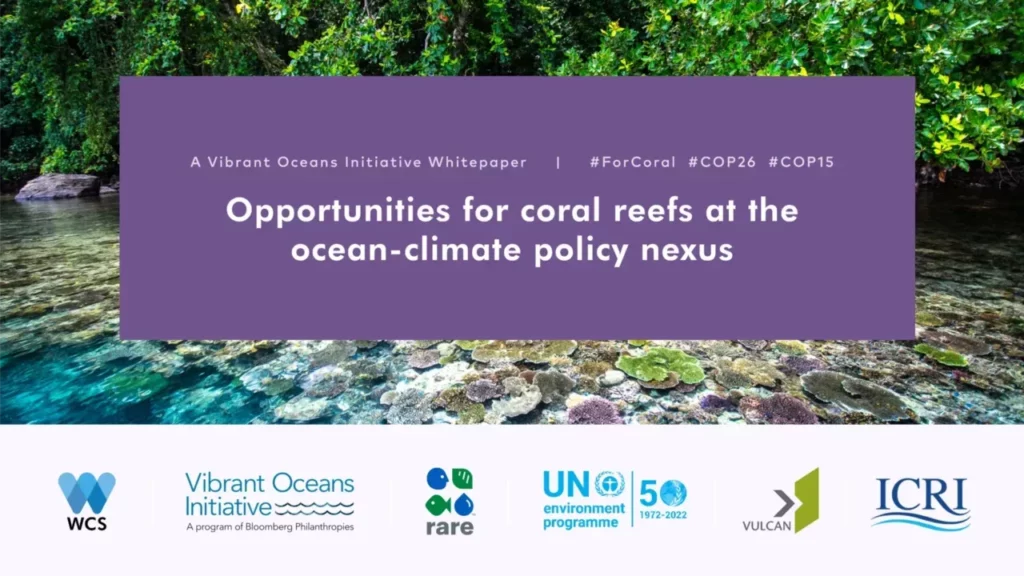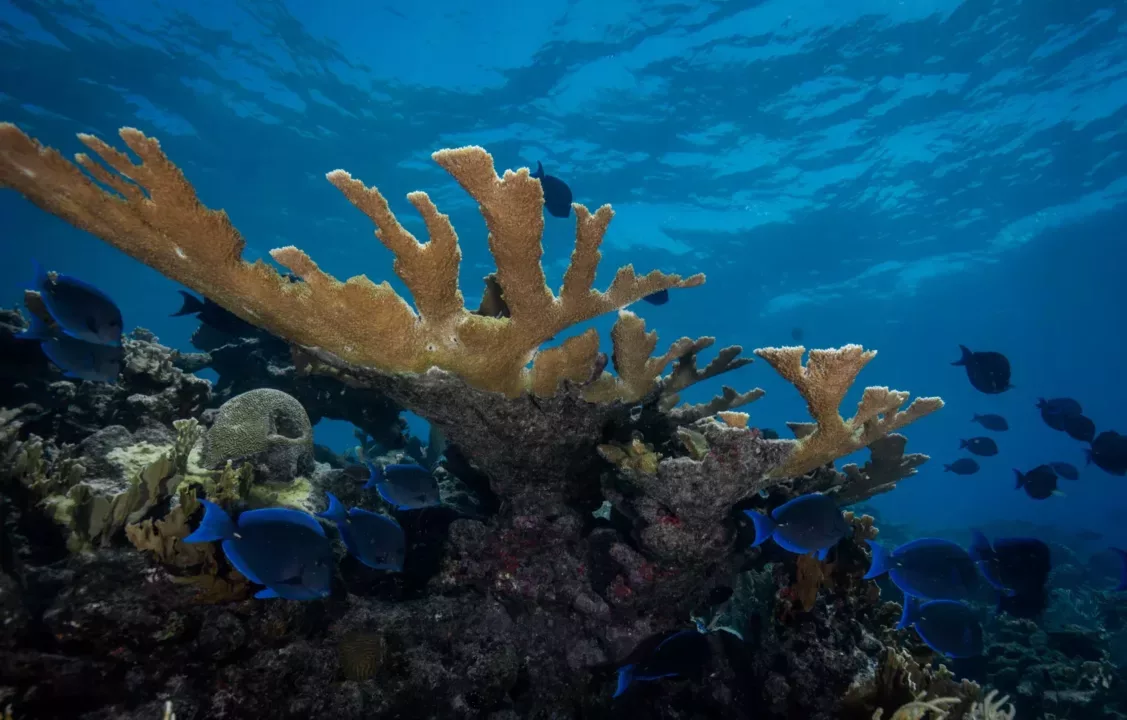ICRI, in collaboration with the Wildlife Conservation Society, and others has released a new whitepaper on opportunities for coral reefs at the ocean-climate policy nexus.

This whitepaper, released 5th November 2021, summarises the scientific and policy consensus at the ocean-climate nexus, specifically concerning the role of coral reefs and closely associated tropical coastal ecosystems in climate change processes. It identifies gaps within key intergovernmental climate and biodiversity policy frameworks that must be addressed to maximize their potential as nature-based solutions during a key decade of conservation action. It concludes with recommendations for national governments and other stakeholders.
This article presents the main takeaways from the whitepaper.
Why coral reefs matter for climate
Coral reefs are key biodiversity hubs, providing ecosystem services that are essential to human well-being. They are also highly vulnerable to climate change and other threats but are often overlooked in international climate policy and national climate commitments because they are not technically a ‘blue-carbon’ ecosystem (i.e., a carbon sink). However, coral reefs are ecologically interlinked with coastal ecosystems that act as carbon sinks and have a major role to play in climate adaptation.
Challenges and opportunities
The main challenges at the Ocean-Climate Policy Nexus are that oceans and coral reefs are not uniformly reflected in national climate commitments, adaptation in coastal ecosystems requires integrated guidance and local approaches, and continued political and practical shortfalls may undermine global progress.
But opportunities lie in the increased attention given to ocean ecosystems in international climate policy and the recognition by governments of the urgency of climate change adaptation. Updating national plans can also help maximize outcomes for coastal mitigation, adaptation, and biodiversity, and other policy frameworks for biodiversity can reinforce and complement climate policies.
Recommendations
This whitepaper asks for climate and biodiversity conferences to work jointly for coral reefs, to use climate COPs to strengthen adaptation plans for coral reef countries, to link mitigation and adaptation outcomes through area-based conservation, to adopt a global biodiversity framework, with indicators, that provides for coral reef adaptation, to create a global currency based on those indicators to measure progress, to strengthen capacity and building on traditional knowledge for better biodiversity outcomes, to use existing partnerships to increase momentum and collaboration, and to provide strategic funding for coastal ecosystems.
Call to action
- Parties should maintain momentum by explicitly mentioning the ocean / climate / biodiversity nexus in the official decision at COP26.
- Parties should unilaterally improve their coastal commitments and plans, including strengthening the links between coastal mitigation and adaptation strategies and new biodiversity strategies.


